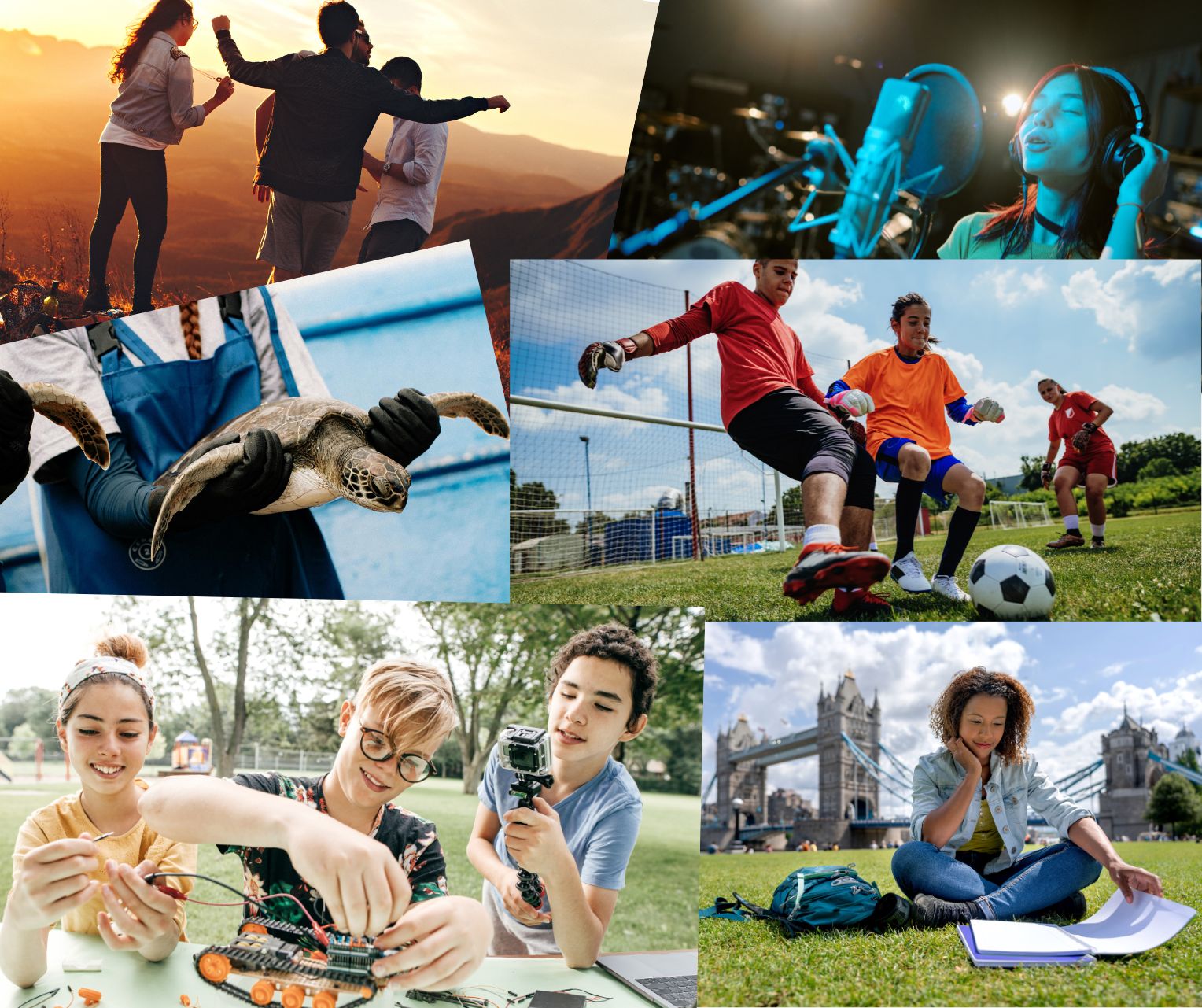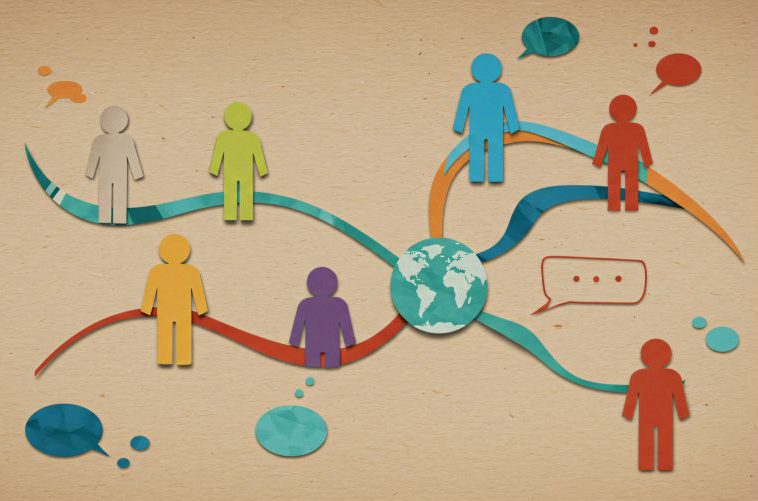
Global innovation doesn’t have to wait until you graduate
Posted by
Stop scrolling for a minute and think about this: when was the last time you saw something halfway across the planet and knew about it instantly? Yesterday? An hour ago? Ten minutes ago? We live in an “instant access” world. You can glance to the left in your Connecticut bedroom and connect with someone in Sydney, Australia, thanks to fiber optics and that tiny computer living in your pocket.
Instant communication. Instant connection. Instant responsibility.
Global access has become an accepted feature (necessity?) of modern life and shifted the paradigm for your future. This access has shrunk our world, bringing distant struggles and triumphs into sharp focus, demanding more of us than previous generations. We can use the connectivity for entertainment and gossip, sure. But it’s also become a powerful tool and immediate call to action.
So. What are you gonna do with all that access?
You already live a global life: Our interconnected reality
Real talk time. Being globally-minded isn’t an extra-credit assignment. Now it’s the main event. You might think global issues are for politicians, entertainers, sports stars, or activists, but your daily life is woven into the fabric of the global economy and environment.
Remember how, in 2022, the Ukraine-Russia conflict caused gas prices to skyrocket at your local station? Or the 2020 pandemic that upended global supply chains for over a year? Everything is connected today. The world’s issues — climate change, economic development, diplomacy, humanitarian crises, even the latest viral dance trend (I see you, The Fate of Ophelia) — are knocking on everyone’s doors. Even yours.
The food you eat, the clothing you wear, the apps on your phone… all have a complex, global story involving workers, resources, and policy decisions made thousands of miles away. Recognizing this reality is the first step toward making an impact. You’re not just a resident of your town; you’re a citizen of the world.
We created our TeenLife Global Impact guide because the world has grown smaller, and people have the potential to contribute so much more. If you’ve found yourself doomscrolling about a problem and thinking, “Someone should fix that,” read this guide. We wrote it for the dreamers looking beyond the backyard fence who are curious about what it’s like to deliver aid, build a school, or sit at a table where policies are made. We wrote it to encourage you to ask, “What if?” What if you could channel your loves and hobbies into a way to make real-world change?

Careers: Purpose and paychecks
Think about the job market that your parents or older family members talk about. Now think about this: today’s top employers, from tech giants like Meta and Google to nonprofits like Amnesty International and Doctors Without Borders, want people who don’t just “get” their local community but who can navigate a world of diverse cultures and perspectives. In other words, the demand for globally minded employees is exploding.
Why? Because every significant business decision today has an international echo. Your future boss doesn’t need someone who only crunches numbers or drafts good emails. They need a diplomat, a translator of cultures, someone who understands that a factory decision in Berlin has ripple effects on wages in Bangkok. The modern professional must have a Global IQ — the ability to recognize, understand, and adapt to cultural and economic differences.
Here’s how it might look.
- For businesses: If you’re managing a product, you have to think about regulatory differences in Europe, consumer preferences in Asia, and sustainability standards everywhere. Suddenly, understanding history, language, and global economics becomes priceless.
- For nonprofits and non-governmental organizations (NGOs): These entities rely on people who can implement culturally sensitive programs, manage international logistics, and negotiate with foreign governments.
- For government and diplomacy: While the most obvious global impact area, it extends far beyond embassies to include foreign law, counterterrorism, public health initiatives, and more.
Thinking about a career in sustainable fashion? That’s global, with its focus on ethical sourcing and labor laws worldwide. Interested in cybersecurity? Talk about an international chess match, with attacks coming from all corners of the world. Every sector, from finance (analyzing global markets) to entertainment (producing content for diverse audiences), requires a global perspective.
Why get a “job” when you can find a career where you can make a difference?

Skills to start building now — even in middle and high school
Want to know how to stop merely thinking about global change and start taking action now? Psst. I’ll let you in on a little secret. Start by building your skills. You don’t even have to wait until college, either. Your classroom, extracurricular activities, social media feed, and part-time job can serve as your training ground.
Foundational skills: The 3 Cs
- Empathy and perspective: These skills are your bedrock. Can you step into someone else’s shoes, even if they live thousands of miles away and speak a different language? Global citizens see multiple perspectives.
Action: Volunteer locally but with a global mindset. Help teach English to recent immigrants. Work at a food bank, a local veteran’s association, or a resource center for foster care families. Read books and watch films written by foreign authors and creators. Listen more than you talk, and practice asking open-ended questions about others’ experiences.
- Cross-cultural communication: Learning another language is part of it, but you also need to understand body language, norms, and communication styles. How do people negotiate, show respect, or express disagreement in other parts of the world?
Action: Join clubs that celebrate other cultures (Model UN, foreign language clubs). Seek peers from different backgrounds and learn about their traditions and perspectives.
- Critical thinking: Global problems are messy and multi-layered. Simple solutions rarely work. You need to be able to recognize a problem from economic, social, political, and environmental angles simultaneously.
Action: When you read an article about a global issue, challenge the headline. Ask: “Who benefits? Who is harmed? What’s the history of this conflict or problem?”
Practical skills: Language and digital fluency
Language is power. Our Global Innovation guide offers the inside scoop on languages to study for a global career. Knowing Mandarin, Arabic, French, or Portuguese can open doors to entire continents and career paths. Language study is the ultimate way to learn about another culture. Plus, learning a second (or third) language can literally change the way you think and process information.
The 21st century requires digital fluency. So use your powers for good. Can you leverage social media platforms to organize a cross-continental campaign? That’s a skill. Can you use data analysis tools to track the impact of a local initiative? That’s a skill, too. Modern global leaders have the ability to vet sources, communicate respectfully online, and organize information across vast differences — and do so every day.
Start local, think global: The power of community impact
It’s easy to feel overwhelmed when you think about the scale of global problems such as famine, poverty, climate change, or pandemics. But you don’t need a passport or a college degree to start making an impact. Every global issue has a local address.
The best way to train for global impact is by helping to solve problems in your own community, seeing them as miniature versions of the world’s problems. Organizing a food drive for the local food pantry is humanitarian aid. Your local park clean-up is climate action. Volunteering at a vaccination event (like local drive-through flu clinics) is healthcare. Check out our blog on social entrepreneurship for other ideas, too.
Champion global issues in your school
Model United Nations (UN) and Junior State of America (JSA): These organizations are wonderful training grounds. Model UN introduces you to international policy, diplomacy, and negotiation, giving you a chance to represent a country and defend its position on a major world problem. JSA focuses on political debate and civic engagement, training you to clearly articulate complex ideas.
Form a Global Awareness club: Pick a UN Sustainable Development Goal (SDG) that interests you, like Zero Hunger, Quality Education, Clean Water and Sanitation, and use that SDG to focus your club’s work. For example, you could host a film series on global water scarcity and then fundraise for a local organization that helps provide clean water to homeless populations.
Practice social entrepreneurship locally
Social entrepreneurship means using business methods to solve social problems. Yes, you ask for donations, but you also work towards creating a sustainable model. For example, you could start a local upcycled clothing business to raise funds for a global fair-trade organization, like the Fair Trade Federation. You’re simultaneously promoting sustainable fashion and supporting ethical labor practices overseas. Congrats! Now you’re thinking like a savvy businessperson and helping to protect the planet.
Engage in local diplomacy
Seek opportunities to work with diverse populations in your area, and turn your empathy into action. Volunteer at a library to help non-native English speakers practice conversation. Mentor students from different economic backgrounds. Although this interaction is low-stakes, it’s also a high-level diplomacy that prepares you to work with international teams during your career.

The path to purpose
The world isn’t waiting for you to graduate from college. It needs your talent, enthusiasm, and vision now. Our Guide to Global Innovation can be your spark for other ideas. We did the heavy lifting, packing its pages with resources, programs, and articles — from inspiring stories of regular people who became changemakers, to organizations with a global connection that welcome teen volunteers. You’ll read about how one person really can change the world (hint: that person could be you!).
A roadmap for the future global citizen
- Identify your passion (or your worry). Is it the environment? Human rights? Education? Technology? Find the issue that keeps you up at night or regularly interrupts your thoughts.
- Research and plan. What key organizations have already begun working on this problem? What education or skills do you need to join them? Use this guide to find college majors and high school programs that align with your goal.
- Act locally. Apply the skills and awareness gained from your research to a local project. Master problem-solving in your community first.
- Seek global experiences (in-person or virtually). Look for internships, collaborative projects with overseas students, or global exchange programs. Even a short-term experience can fundamentally shift your perspective.
Our TeenLife team invites you to dive in, find the one career or topic that makes your heart beat a little faster, and start building your future. And if you can’t narrow down your interests, that’s okay, too! Many global impact programs and services in our guide have varying lengths, so you can participate in more than one to see what’s out there.
The world’s becoming smaller, and your opportunity to lead with empathy and make a lasting global impact is bigger than ever. What are you waiting for? Start exploring today!
Blog Categories
- Career Advice
- College Admissions
- Colleges & Universities
- Financial Aid and Scholarships
- For Counselors
- For Parents
- For Students
- Gap Years
- Mental Health and Wellness
- Online Learning
- Performing and Visual Arts
- STEM Majors and More
- Summer Programs
- Teen Volunteering
- Trade & Vocational Schools
- Tutoring & Test Prep

Organization with listings on TeenLife? Login here
Register for Free
We’re here to help you find your best-fit teen-centered academic and enrichment opportunities.
Forgot Password
"*" indicates required fields








